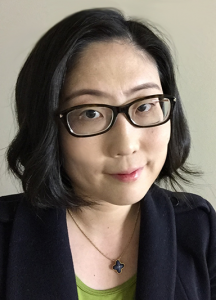 Joint UW CSE and Genome Sciences professor Su-In Lee, whose research focuses on the intersection of computer science and biology, has received an NSF CAREER Award. The award will support her efforts to develop a computational framework for identifying how the human genome interacts with hundreds of regulatory molecules—research that will answer fundamental questions to advance our understanding of how the human genome works.
Joint UW CSE and Genome Sciences professor Su-In Lee, whose research focuses on the intersection of computer science and biology, has received an NSF CAREER Award. The award will support her efforts to develop a computational framework for identifying how the human genome interacts with hundreds of regulatory molecules—research that will answer fundamental questions to advance our understanding of how the human genome works.
Lee develops novel statistical and machine learning techniques to solve a variety of thorny problems in biology, from basic science to bedside applications. Her current projects include the development of computational methods to choose the best chemotherapy drug for individual cancer patients, to identify therapeutic targets to halt the progression of Alzheimer’s, and to predict in real time whether a patient under anesthesia during surgery may develop a respiratory crisis. Lee’s group collaborates with various departments at UW Medicine and Fred Hutchinson Cancer Research Center, and she has major research grants from the National Science Foundation, the National Institutes of Health and the American Cancer Society.
In this latest project, Lee will work with chromatin immunoprecipitation-sequencing (ChIP-Seq) data, which measures the location of each of the hundreds of regulators on three billion positions in the human genome. By developing novel computational methods to analyze these big data—involving thousands of available ChIP-Seq data sets—Lee aims to advance the research community’s knowledge of how these regulators interact with each other to control the human genome as well as how those interactions differ across various cell types and across species.
The CAREER Award program is the most prestigious category of awards given by the National Science Foundation in support of junior faculty who exemplify excellence in teaching and research. Lee is the 30th current UW CSE faculty member to be recognized through this program or its predecessors.
Learn more about this project on the NSF award page here, and check out Lee’s research page here.
Congratulations, Su-In!

